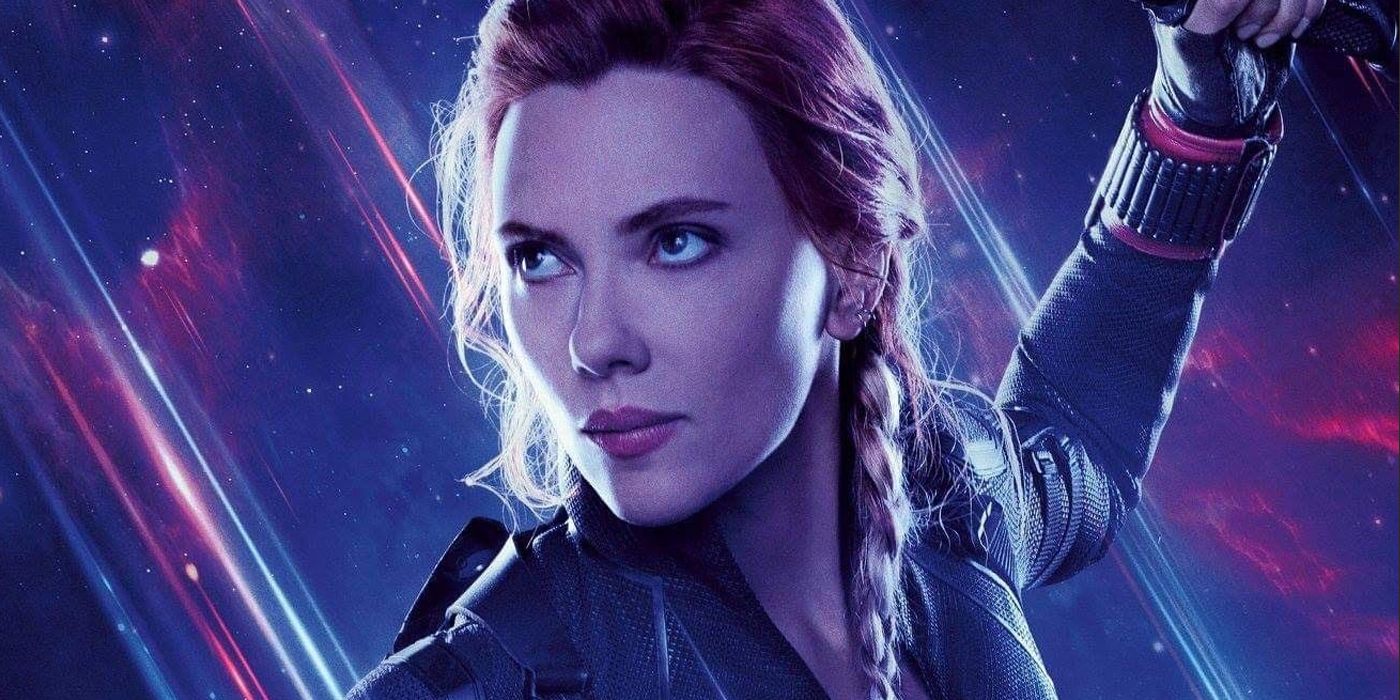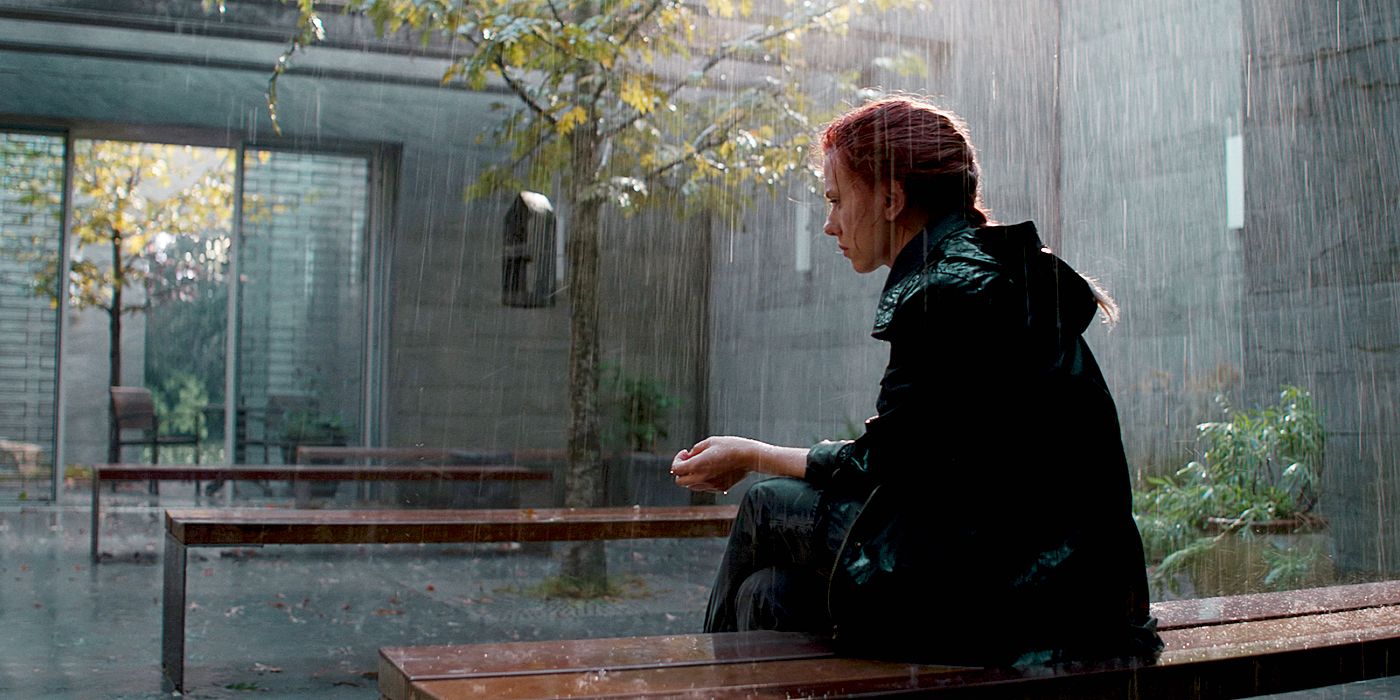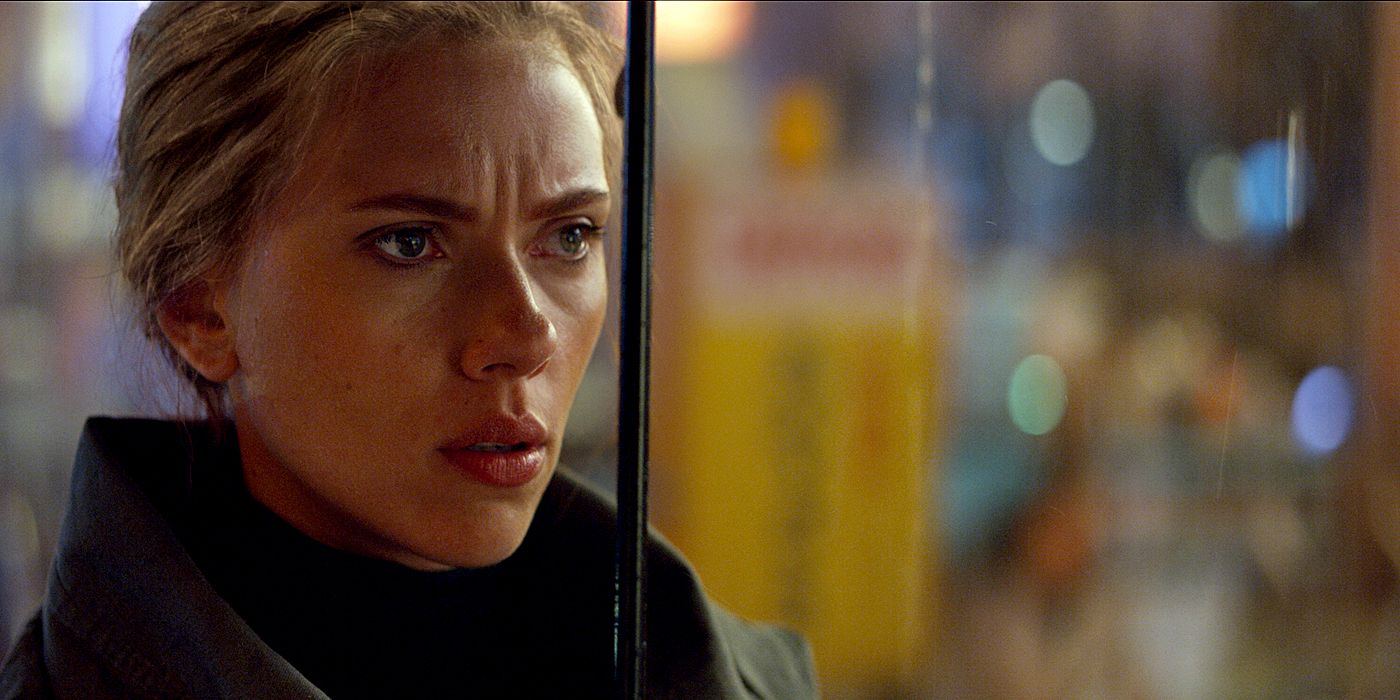WARNING: The following article contains spoilers for Avengers: Endgame, in theaters now.
Heroic sacrifices were a given for Avengers: Endgame, but while Tony Stark’s final moments marked the satisfying completion of a decade-long arc from "genius, billionaire, playboy, philanthropist" to humbled family man, the other big, more surprising loss in the film came when Black Widow traded her soul for the Soul Stone.
Rather than watch the life slowly leave her body while surrounded by all the people she loved, our last sight of Natasha was her limp, bloodied body lying at the bottom of a rock face on a distant planet. Black Widow’s death -- while just as noble -- had none of the bittersweetness of Iron Man's. Instead, it was just bitter.
Tragedy, futility and emptiness are all valid themes to accompany the death of a major character, particularly in a film with such a doom-and-gloom title, but those shades were an unfortunate choice for a character whose entire journey is, in retrospect, glaringly empty compared to her fellow founding Avengers. It doesn’t help overturn her tokenesque place as the only woman among the original six at all.
Now that they've all been given a proper send-off, we can judge each of these original Avengers’ MCU stories in their entirety. Tony Stark, as previously mentioned, went from a soulless weapons dealer to a selfless humanitarian, proving that, like the Wizard of Oz's scarecrow, he had a heart all along.
Steve Rogers went from a bright-eyed war hero to a hardened veteran, a man out of time who eventually got to turn back the clock. Thor went from a petulant prince to a broken man, and finally shirked the burden of responsibility to be comfortable as himself.
Bruce Banner went from a homeless fugitive to a monstrous liability, and ended up finding a way to stabilize his identity crisis. We even got to see Hawkeye fleshed out by the addition of a secret family, watched him go off the rails when said secret family was taken from him and finally hang up his bow for good after getting them back.
What can we say about Natasha Romanoff? Black Widow was the third Avenger we were introduced to after Iron Man and Hulk and has appeared in almost as many films as they have. In that time, we’ve seen her grow from a super spy with mysterious origins to… a super spy with vague origins and a strange fixation on Budapest. That’s just not enough development for a top-billed character with seven movies under her belt.
As the rest of the team tries to come to terms with her death in Endgame, the question of contacting her family comes up. "We were her family," is the stony response. It's a sad realization for both the team and for us, the audience, not only because of how pitiful it is, but because the realization itself only sets in after her life has ended. Only in death do we really get to know who Black Widow was.
Prior to this, Natasha's true nature -- or elements of it -- were only ever alluded to in coded phrases or snippets of stories, like second-hand gossip. "I got red in my ledger," she tell us in The Avengers, but we never find out what this means.
Some incriminating information is leaked about her during the fall of S.H.I.E.L.D in Captain America: The Winter Soldier, but we never find out what this is. Avengers: Age of Ultron gives us a fleeting glimpse into what looks like memories of her time in the Red Room, but we never find out why, or what happened there.
She and Hawkeye's friendship seems to be based on a mutual "don't ask, don't tell" pact concerning their past misdeeds, but we never find out what these were. By this point, the Budapest name-drop in Endgame as the duo race towards Vormir is no longer a playful hint at a storied, shared history, but a repeated reminder that the Avengers' flagship Strong Female Character remains a closed book after 10 years' worth of storytelling.
Of course, there's the long-awaited Black Widow solo movie still to come. Long-awaited because no one at Marvel Studios seemed particularly interested in making it until fan pressure made it a reality. Even if the film does finally give us some context for red ledgers, ballet studios and Eastern European capital cities, it seems like far too little, far too late now that Natasha is dead and buried.
Our investment in characters whose stories have already ended tends to be much lower, which is why character-centric prequels don't tend to be successful. If Solo: A Star Wars Story had been released before The Force Awakens, for example, maybe audiences would have paid it more attention.
People don't demand spinoffs from ensemble stories for no reason. Black Widow is a fascinating and enigmatic comic book character who was born during the height of Cold War hysteria in the mid '60s. Though her KGB-given name stuck, her allegiance eventually defected to the United States government, and later S.H.I.E.L.D and the Avengers.
It's your classic villain-turned-hero tale, and there's decades worth of source material to pull from when adapting it. Mystery, secrecy and a disregard for human attachment are certainly cornerstones of the character's makeup, but an audience will only put up with being teased for so long before their fingers start to itch for the curtains to be drawn.
Thinking back to Natasha’s problematic conversation with Bruce in Avengers: Age of Ultron, where Joss Whedon had her relate her infertility to his own bodily monstrosity, her sacrifice does track with the shred of meat that Whedon added to the bones of her backstory: Natasha would always choose to give her own life over the lives of both of her adopted families -- the Avengers and Clint’s wife and children.
This is the real tragedy of Black Widow, not in the romantic sense, but in the futile sense. Without her own identity, family or solo movie to call her own, she’s been a perennial addition to other character's lives and films, but never an organic fixture. In the end, giving her own life felt like she was simply surrendering to the emptiness rather than conquering it.
Directed by Joe and Anthony Russo, Avengers: Endgame stars Robert Downey Jr. as Iron Man, Chris Evans as Captain America, Mark Ruffalo as Bruce Banner, Chris Hemsworth as Thor, Scarlett Johansson as Black Widow, Jeremy Renner as Hawkeye, Brie Larson as Captain Marvel, Paul Rudd as Ant-Man, Don Cheadle as War Machine, Karen Gillan as Nebula, Danai Gurira as Okoye and Bradley Cooper as Rocket, with Gwyneth Paltrow Pepper Potts, Jon Favreau as Happy Hogan, Benedict Wong as Wong, Tessa Thompson as Valkyrie and Josh Brolin as Thanos.



